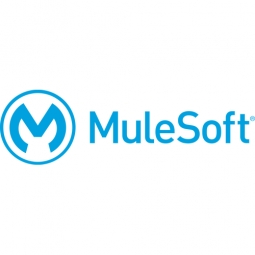公司规模
Large Corporate
地区
- America
国家
- United States
产品
- Mule ESB
技术栈
- Java
- Linux
实施规模
- Enterprise-wide Deployment
影响指标
- Productivity Improvements
- Cost Savings
技术
- 应用基础设施与中间件 - 中间件、SDK 和库
适用功能
- 商业运营
服务
- 系统集成
关于客户
Founded in 1997, TiVo is a pioneer in home entertainment and created a brand-new product and service category with the development of the world's first digital video recorder (DVR). As of October 2009, TiVo had 2.76 million subscribers in the US alone. Today, the company continues to revolutionize the way consumers watch and access home entertainment, by making the TiVo DVR the focal point of the digital living room: a center for sharing and experiencing television, movies, video downloads, music, photos, and more. A large part of TiVo's business comes from partnerships with leading entertainment and technology companies, including DirectTV, Virgin Media, Roxio and HP, among others. TiVo works with these partners to provide partner-branded set-top boxes that embed TiVo's DVR technology and tie back to TiVo's datacenter for services such as authentication, software updates and programming schedules.
挑战
TiVo, a pioneer in home entertainment, faced a challenge as its growth continued to accelerate and new partners came on board. The company's infrastructure included over 40 web services that provided services for both TiVo and its partners. Prior to implementing Mule, TiVo integrated these web services in a point-to-point fashion using custom Java code. As the number of services increased, the infrastructure grew in complexity, becoming more and more brittle. Every new service required an exorbitant amount of development effort and was difficult to maintain. Even simple configuration changes presented a problem - because of all the dependencies introduced by the point-to-point architecture, any change to the system would trigger changes that cascaded throughout the application. Because of the complexity, developers would need to meticulously test the entire system, making sure that the change didn’t have unintended consequences.
解决方案
TiVo made a strategic decision to move towards a service-oriented architecture (SOA), with an enterprise service bus (ESB) at its core. In selecting an ESB provider, TiVo reviewed multiple offerings, with a short list that included Mule ESB and Oracle Service Bus. With its core product built on the Linux operating system, TiVo understands the power of open source, and took advantage in its evaluation, leaning on Mule's broad developer community for technical help and validation. At the same time, given the mission-critical nature of TiVo's service infrastructure, MuleSoft's enterprise-level support offerings gave the operations team great comfort to in the case of an issue or unplanned outage. The team selected Mule as the clear choice.
运营影响
数量效益

Case Study missing?
Start adding your own!
Register with your work email and create a new case study profile for your business.



